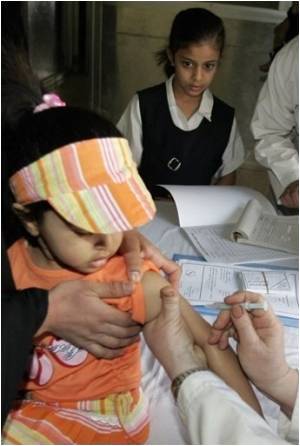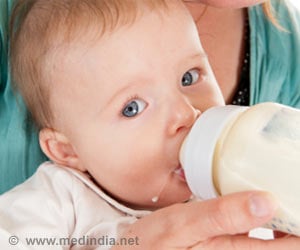A new research has found that young infants have a gap in their defence against measles, from around two to three months old until they are vaccinated at 12 months of age.

These findings underline the importance of measles vaccination at around 12 months of age and support ongoing research into earlier vaccination.
The study involved 207 healthy women-infant pairs recruited from five hospitals in the Province of Antwerp, Belgium from April 2006.
Medical records were used to divide women into two groups: those who had been vaccinated against measles during infancy and those with naturally acquired immunity from measles infection earlier in life.
Levels of measles antibodies were measured from blood samples taken during week 36 of pregnancy, at birth (cord blood), in all infants at 1, 3 and 12 months, and randomly at either 6 or 9 months.
Vaccinated women had significantly fewer antibodies than did naturally immune women. Similarly, infants of vaccinated women had significantly lower antibody levels than infants of naturally immune women.
Advertisement
At six months of age, over 99 percent of infants of vaccinated women and 95 percent of infants of naturally immune women had lost their maternal antibodies. And at 9 and 12 months, no positive samples were left in either group.
Advertisement
This study describes a very early susceptibility to measles in both infants of vaccinated women and women with naturally acquired immunity, say the authors.
If future studies show that measles vaccines can be offered with success at an age of less than nine months, policy makers could consider moving forward the routine measles vaccination programme.
The study has been published on bmj.com.
Source-ANI
THK








